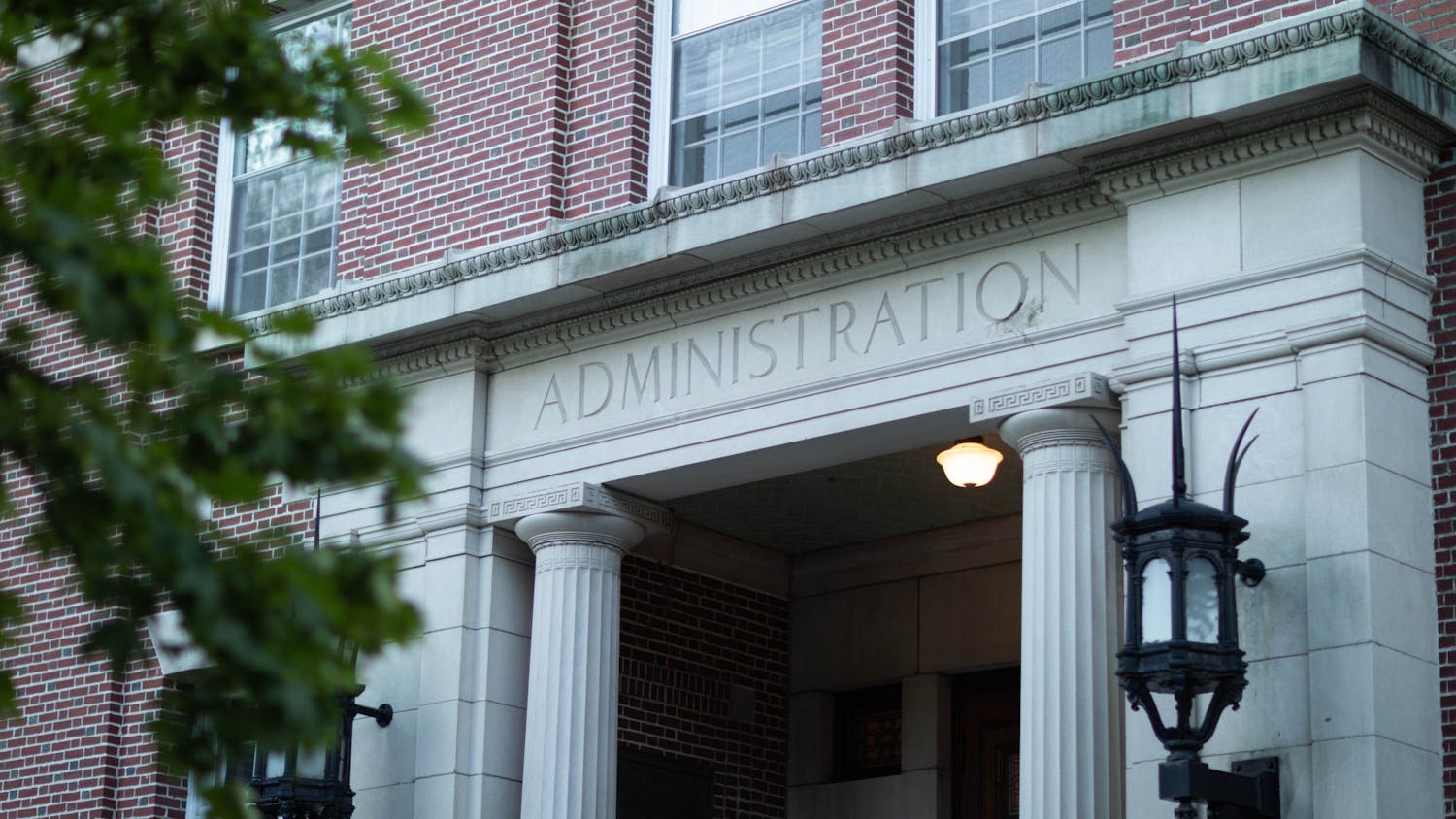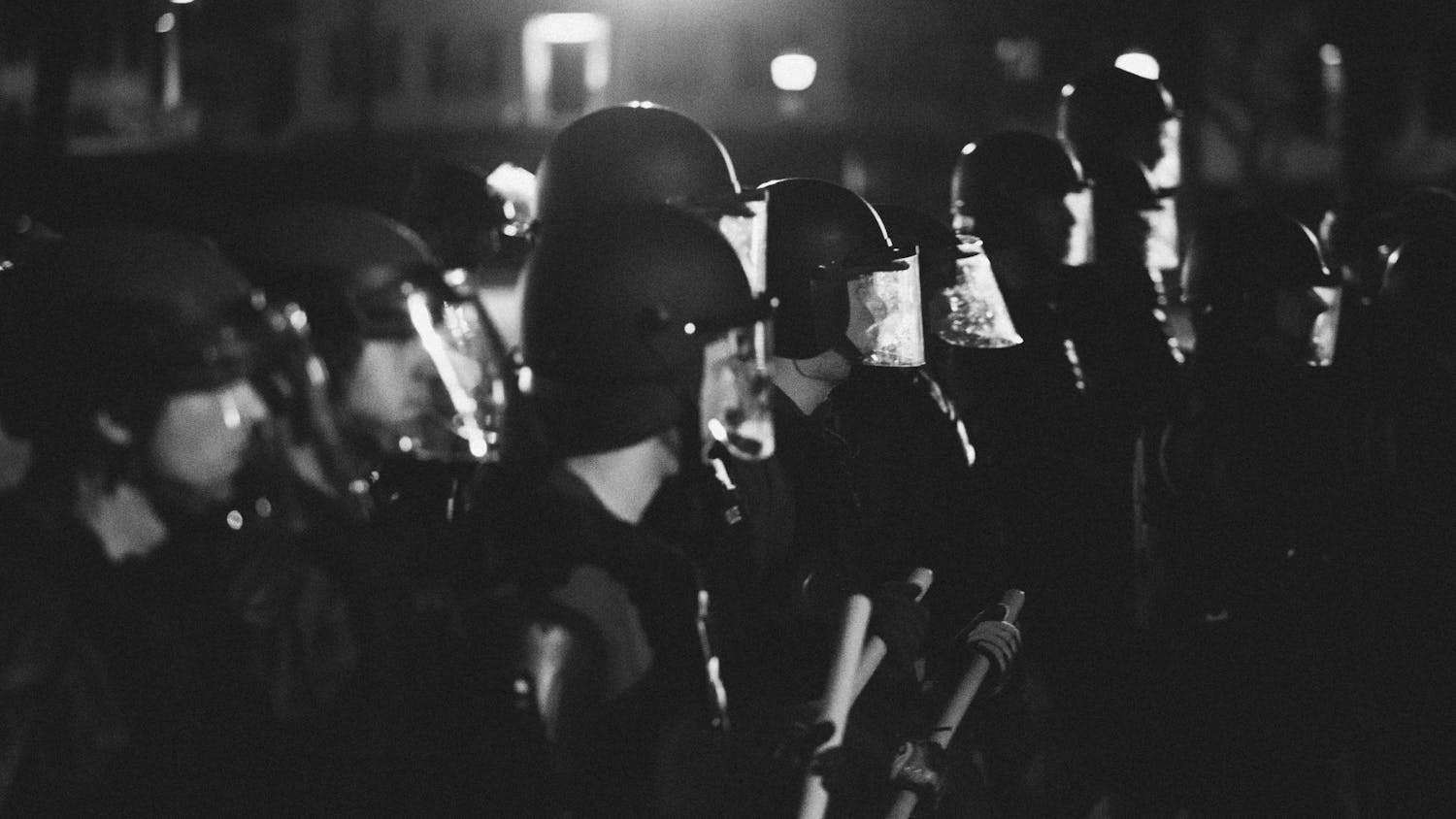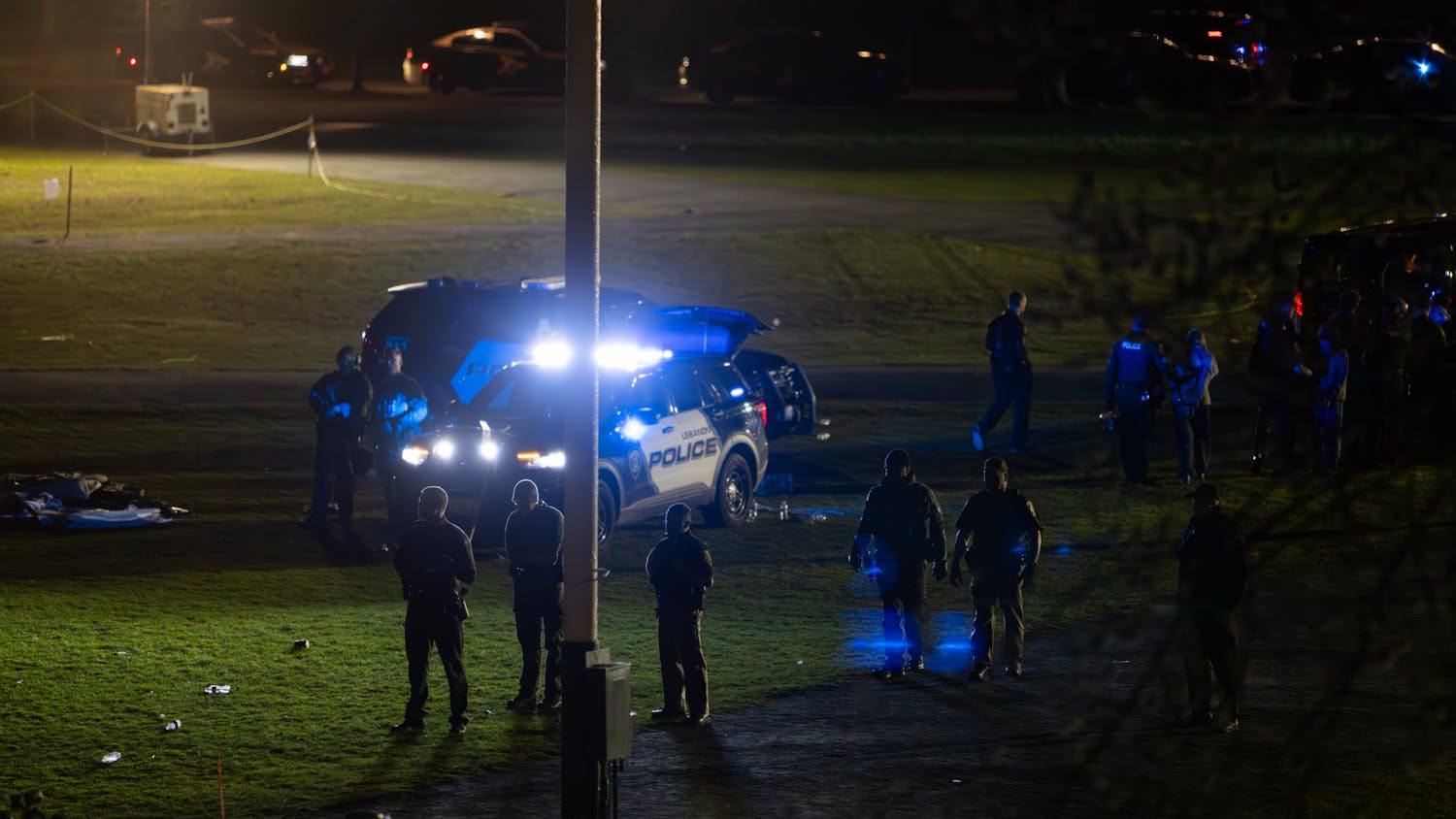Throughout the years, Dartmouth's Commencement has been graced by the likes of United States Presidents Franklin Delano Roosevelt and Dwight Eisenhower and literary legends Ralph Waldo Emerson and Walt Whitman.
It has also been attended by drunkards, auctioneers, gamblers and a Native American standing on the branch of a pine tree.
Somewhere in there, the College managed to fit in a few graduates, an occasional faculty member or two and a couple of College Presidents.
Like every other Dartmouth tradition, Commencement has evolved throughout its 223-year existence and certainly had more than its fair share of strange occurrences.
The beginning
There were only four graduates at the College's first Commencement in 1771, and these students only spent one year at Dartmouth having received the first three years of their undergraduate education at Yale.
The ceremony, which included orations in Latin and English and began and ended with a prayer, occurred on Wednesday, August 28, 1771 in the location where Reed Hall now stands, according to a Commencement history written by the late College Professor Francis Lane Childs '06.
These four young men were honored by College founder Eleazar Wheelock and New Hampshire Governor John Wentworth, who made the journey from Portsmouth to Hanover accompanied by 60 guests.
To celebrate the first graduating class, Wheelock planned a large banquet and provided rum for his guests. But the College's founder was a tad too generous with his liquor -- the cooks partook rather liberally in the festivities and were consequently unable to prepare the meal.
The event was so unusual that a Native American student is reputed to have delivered a graduation address from the branch of an overhanging pine tree.
In addition, although the four graduates received their diplomas, the documents could not be signed because there were not enough Trustees present for a quorum.
A timely matter
As the academic calendar evolved, the date of Commencement moved to earlier in the year. In 1835, Commencement moved to the last Wednesday in July, one month earlier than the original date.
The Commencement date changed to June in 1872, with graduates receiving degrees on the last Thursday of the month.
Commencement reached its current resting place, the second Sunday in June, in 1939.
Where does it happen?
Commencement was originally held where Reed Hall now stands. In 1795, the ceremony was held in the newly erected College Church on the north side of the Green.
In 1907, the increased size of the graduating class forced the event into the then-new Webster Hall.
As the class continued to grow, Webster became too small and Commencement was moved outside onto the Bema, where an amphitheater was constructed for the event.
The ceremony moved to its current location, the front lawn of Baker Library, in 1953, when the Bema could not contain the crowd that showed up to hear President Eisenhower speak.
A changing ceremony
The actual Commencement ceremony has seen many forms, some rather strange and others long and burdensome.
Until 1827, Latin was Commencement's official language, according to Childs' history. All announcements were made in Latin, and anything said in English was introduced as "in lingua vernacula," in the vernacular language.
But, according to Childs, this process did not always run smoothly. On one occasion, President John Wheelock announced loudly, "Musica expectatur!"
Nothing happened, leading Wheelock to repeat his command twice with increasing emphasis. Finally, Wheelock got fed up with the unresponsive band and shouted, "Play it up!" at which point the band kicked into action.
In 1795 and 1799, the ceremony even included sections in Hebrew. Early programs in Commencement had many orations of all sorts. In 1793, ten speakers were required to perform a dialogue on "The Trial of Louis XVI."
In 1807, the program listed orations in Latin, Greek, Hebrew, Chaldaic, French and English. Ceremonies at this time typically included 10 to 20 speeches.
College President Nathan Lord dramatically increased this number in 1835, when he required all graduates to give a 10 minute speech on an assigned topic.
Believing that "ambition and emulation are selfish principles, and therefore immoral," Lord abolished all competitions, class ranks and honors designations. By insisting that every graduating student deliver a speech, Lord prevented students from competing to speak.
The result was that 48 graduating seniors spoke at Commencement in 1835, resulting in an all day ceremony that left the audience bored to death.
After four years of this almost universally dreaded ritual, Lord acquiesced somewhat, requiring that only half of the graduating class speak. The speakers were chosen by lot.
According to Childs, this process was still "too long, wearisome, and fruitless," but continued throughout the rest of Lord's administration.
The number of student speakers was reduced to six in 1898, then to three in the 1920s, and finally to one speaker in 1939. The Commencement Committee chose this student and his speech was titled "Valedictory to the College."
Today, the student with the highest grade point average speaks at the ceremony.
Commencement traditions
Commencement, like other Dartmouth events, has its own special traditions that are particular to the College.
In 1929, at its 50th reunion, the Class of 1879 established a fund for music at the Commencement ceremony.
The class gave the College a bond worth approximately $10,000. The income from this bond was to be used to provide a musical program at Commencement.
The 1879s placed one restriction on the music; it had to be played by student or faculty trumpeters located in the Baker Library Tower.
The music of the Class of 1879 Trumpeters has sounded at every Commencement since 1929.
College President Ernest Martin Hopkins had a set ritual he used every year at Commencement which was recorded in a 1943 transcript stored in Baker Library's Special Collections.
The Dean of the Faculty would announce to Hopkins, "Mr. President, the men standing before you have completed all the requirements of Dartmouth College for the Bachelor's degree. I take pleasure, therefore, at the request of the faculty and the Board of Trustees, in presenting each one of them to you for the degree of Bachelor of Arts in course."
Hopkins would then reply, "By virtue of the authority given me by the Trustees of Dartmouth College and in their behalf, I admit you to the Bachelor's Degree, according to the testimonials which you are about to receive, and I declare you worthy of all the rights, honors, and signed obligations here and elsewhere belonging to this degree."
The randoms invade
It is almost impossible to predict who is going to show up at Dartmouth's Commencement. All sorts of people have attended, and not all of them were invited.
In the early 19th century, Commencement was a major social event in New England and it was not the academics that attracted people.
According to Childs' history, "the inhabitants for twenty miles around celebrated Commencement in much the same manner as fall muster or the agricultural fair. . . The entire south end of the Green had every available spot occupied by booths and tents, from which were dispensed all kinds of food and drink, patent medicine, knickknacks and gewgaws, soap and cologne, and an endless variety of miscellaneous articles. Jugglers, mountebanks, sideshows, and auctioneers were numerous."
An 1833 account of Commencement cites "peddlers, gamblers, drunkards and shows" as undesirable elements on the Green.
"I should think there were in sight of one another 30 places of gambling," said one observer. "During the graduation exercises in the meeting hall, the vociferations of a dozen auctioneers were to be distinctly heard in the house."
Famous guests
Dartmouth has had its fair share of famous speakers at Commencement.
Ralph Waldo Emerson, the famous transcendentalist writer, spoke at the 1838 Commencement. He gave an address titled "Literary Ethics."
American poet Walt Whitman spoke at the 1872 Commencement. Whitman was far from the average speaker.
Whitman chose not to wear the traditional cap and gown, instead preferring to shock the audience by wearing a "flannel shirt with a square-cut neck, disclosing a hirsute covering that would have done credit to a grizzly bear," as one observer put it.
Whitman did say he enjoyed his visit to Hanover, describing it as "a beautiful New England village, 150 years old -- everything comfortable but very Yankee."
The 20th century brought a stream of distinguished visitors to Dartmouth to accept honorary degrees. Franklin D. Roosevelt, Robert Frost, Leonard Bernstein and Walter Cronkite are just some of the major figures to have visited Hanover.
But the most famous commencement of all occurred in 1953, when President Dwight D. Eisenhower delivered an impromptu address denouncing McCarthyism and book burning.
Donald Goss '53 told The Dartmouth that there were "Secret Servicemen in the windows of Baker and machine guns on the roof," and several bodyguards dressed inconspicuously in caps and gowns.
Eisenhower's speech did not disappoint. Eisenhower had planned to give a standard oration, but after listening to the discussion on the podium before his speech, he decided to change his topic.
"Don't join the book burners," Eisenhower said. "Don't think that you're going to conceal faults by concealing evidence that they ever existed. Don't be afraid to go in your library and read every book, as long as any document does not offend our ideas of decency. That should be the only censorship."
For the 12 years before 1983, though, the College gave up the tradition of having an official commencement speaker. Paul Volcker, chairman of the Federal Reserve Board, resumed the tradition in 1983.
Last year, Oscar Arias Sanchez delivered the address.



